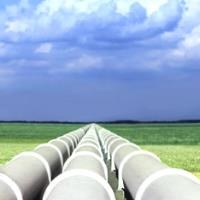(BRUSSELS) – With Europe facing the risk of further gas supply cuts by Russia, the European Commission put forward Wednesday a European Gas Demand Reduction Plan to reduce gas use in Europe.
Almost half of the EU’s Member States have already affected by reduced deliveries, according to the EU executive, as a result of the Kremlin’s weaponisation of gas exports.
Taking action now, it says, can reduce both the risk and the costs for Europe in case of further or full disruption, strengthening European energy resilience.
With the new legislative tool and European Gas Demand Reduction Plan, consumers, public administrations, households, owners of public buildings, power suppliers and industry will be urged to take measures to save gas. The Commission will also accelerate work on supply diversification, including joint purchasing of gas to strengthen the EU’s possibility of sourcing alternative gas deliveries.
The Commission is proposing a new ‘Council Regulation on Coordinated Demand Reduction Measures for Gas’, based on Article 122 of the Treaty. The new Regulation would set a target for all Member States to reduce gas demand by 15% between 1 August 2022 and 31 March 2023. The new Regulation would also give the Commission the possibility to declare, after consulting Member States, a ‘Union Alert’ on security of supply, imposing a mandatory gas demand reduction on all Member States. The Union Alert can be triggered when there is a substantial risk of a severe gas shortage or an exceptionally high gas demand. Member States should update their national emergency plans by the end of September to show how they intend to meet the reduction target, and should report to the Commission on progress every two months. Member States requesting solidarity gas supplies will be required to demonstrate the measures they have taken to reduce demand domestically.
To help Member States deliver the necessary demand reductions, the Commission has also adopted a European Gas Demand Reduction Plan which sets out measures, principles and criteria for coordinated demand reduction. The Plan focuses on substitution of gas with other fuels, and overall energy savings in all sectors. It aims to safeguard supply to households and essential users like hospitals, but also industries that are decisive for the provision of essential products and services to the economy, and for EU supply chains and competitiveness. The Plan provides guidelines for Member States to take into account when planning curtailment.
By substituting gas with other fuels and saving energy this summer, more gas can be stored for winter. Acting now will reduce the negative GDP impact, by avoiding unplanned actions in a crisis situation later. Early steps also spread out the efforts over time, ease market concerns and price volatility, and allow for a better design of targeted, cost-effective measures protecting industry.
The Gas Demand Reduction Plan proposed by the Commission is based on consultations with Member States and industry. A wide range of measures are available to reduce gas demand. Before considering curtailments, Member States should exhaust all fuel substitution possibilities, non-mandatory savings schemes and alternative energy sources. Where possible, priority should be given to switching to renewables or cleaner, less carbon-intensive or polluting options. However, switching to coal, oil or nuclear may be necessary as a temporary measure, as long as it avoids long term carbon lock-in. Market-based measures can mitigate the risks to society and the economy. For example, Member States could launch auction or tender systems to incentivise energy reduction by industry. Member States may offer support in line with the amendment of the State aid Temporary Crisis Framework, adopted by the Commission today.
The Demand Reduction Plan will also help Member States identify and prioritise, within their “non-protected” consumer groups, the most critical customers or installations based on overall economic considerations and the following criteria:
- Societal criticality sectors including health, food, safety, security, refineries and defence, as well as the provision of environmental services;
- Cross-border supply chains sectors or industries providing goods and services critical to the smooth functioning of EU supply chains;
- Damage to installations to avoid that they could not resume production without significant delays, repairs, regulatory approval and costs;
- Gas reduction possibilities and product/component substitution the extent to which industries can switch to imported components/products and the extent to which demand for products or components may be met through imports.
'Save Gas for a Safe Winter' Plan - guide
State aid Temporary Crisis Framework
Factsheet: Save gas for a safe winter


